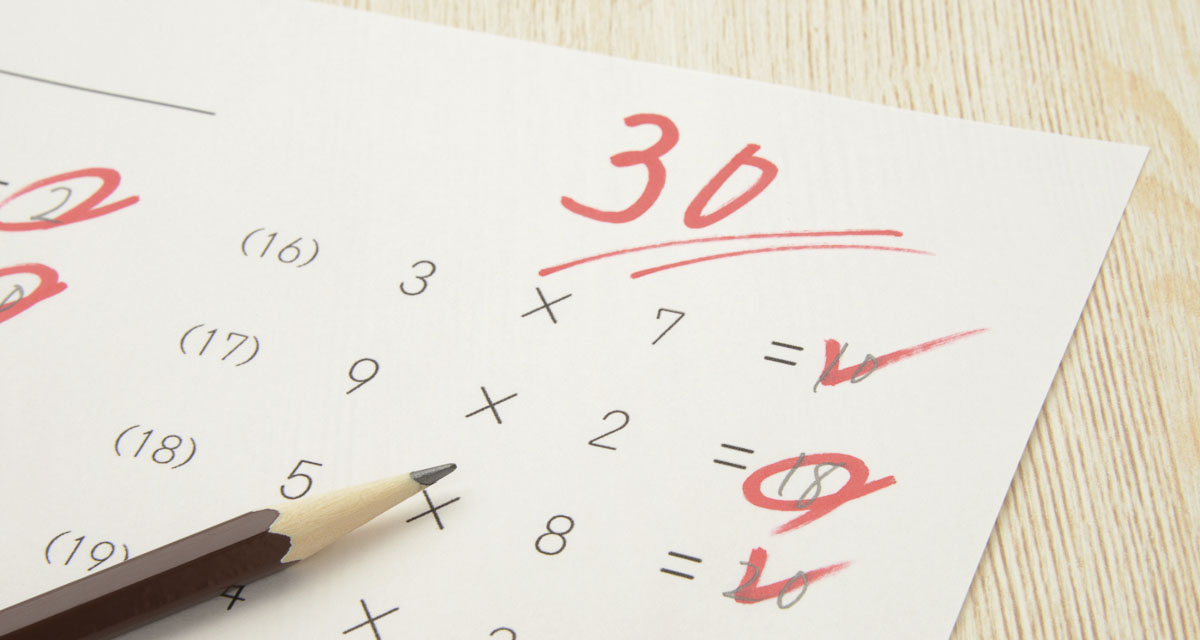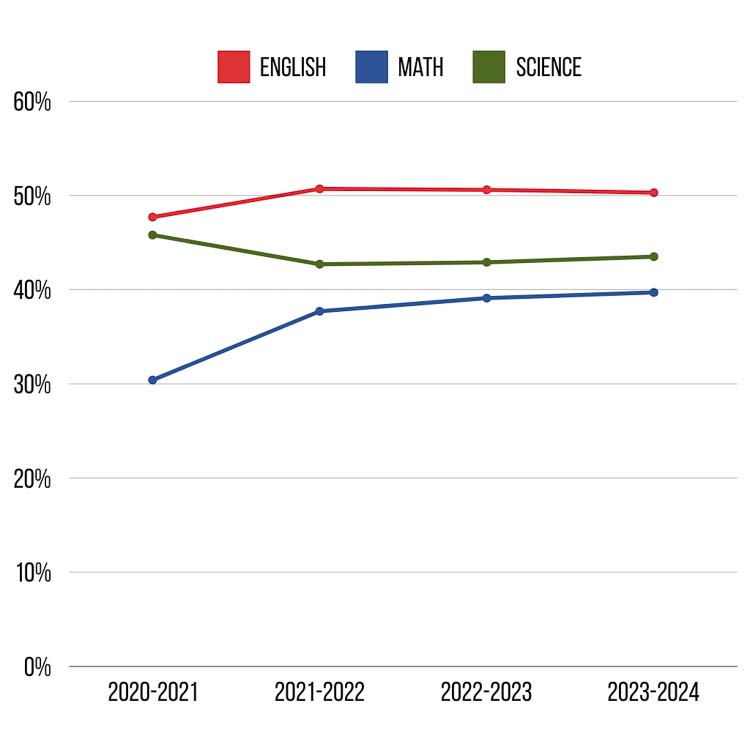
Donald Kimball of the Washington Policy Center believes that allowing a program like Education Savings Accounts would free families from being stuck in a system they mistrust and help their students succeed
Donald Kimball
Washington Policy Center
The 2023-2024 K-12 Report Card has been released by OSPI, and the results continue the pattern of the past few years.
Based on Smarter Balanced standardized testing, only 50.3% of students were considered on track in English, 39.7% in Math, and 43.5% in Science. Last year, the scores were 50.7% in English, 39.1% in Math, and 42.9% in Science.


These scores indicate there hasn’t been any serious improvement for public school students since the learning loss from school closures during the pandemic.
Superintendent Reykdahl has been critical of Smarter Balanced assessment and standardized testing broadly, arguing the numbers don’t tell the whole story of a student’s development. Even still, with the public school system a few years past the COVID closures and spending over $18,000 per student, it would be expected that these numbers, even if imperfect, would improve.
Rather than continuing to believe that spending more money on the current system will suddenly improve student learning, parents should be allowed to take the money and direct it in the most effective way possible. This would allow parents who are happy with these scores to keep their children in the public schools, but allow other parents to choose options they feel better suit the needs of their child.
If their student is excelling in their public school, the system already caters to their needs. If, however, these new results cause alarm, allowing a program like Education Savings Accounts would free families from being stuck in a system they mistrust and help their students succeed.
Donald Kimball is the communications manager and text exchange editor at the Washington Policy Center.
Also read:
- Opinion: Revolution or revival?Nancy Churchill argues that Washington state is ground zero for a Marxist-style revolution but says a cultural revival is possible through personal responsibility and the America First movement.
- Letter: ‘It’s said sarcasm is the lowest form of wit’Amboy resident Thomas Schenk criticizes Olympia’s use of “emergency clauses” and other legislative tactics that limit public participation.
- Letter: ‘We’re going to give them some money and a plane ticket, and then we’re going to work with them’Camas resident Anna Miller supports a new structured self-deportation policy, calling it a balanced approach to immigration and economic needs.
- Opinion: What the 2025 legislature tells us about why Washington’s government keeps failingTodd Myers of the Washington Policy Center argues that Washington’s government fails because it resists humility, experimentation, and accountability in its policymaking.
- Letter: Vancouver needs broader leadership than just a teacher’s lensVancouver resident Peter Bracchi urges Mayor Anne McEnerny-Ogle not to seek another term, calling for more diverse and inclusive leadership rooted in broader experiences.










